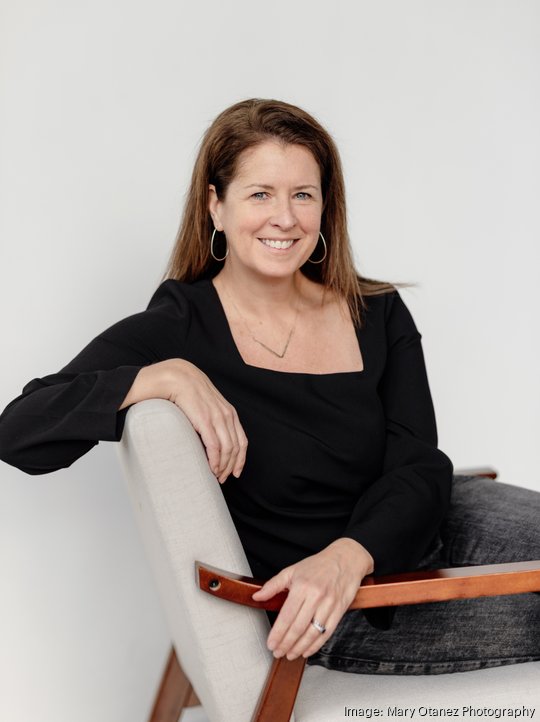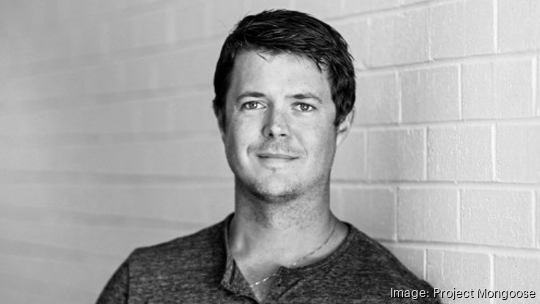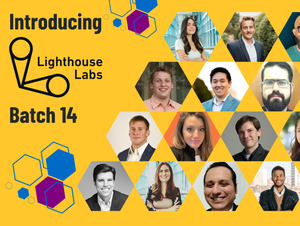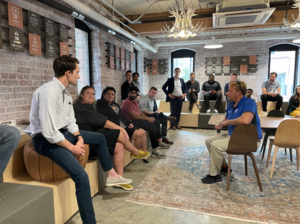
A group of founders has turned to Richmond accelerator Lighthouse Labs to improve their startup’s sales process.
Project Mongoose was started in 2020 and markets a customized software platform for multifamily residences that monitors things like thermostat and electricity usage. The founders have iterated the concept several times and opted to apply to Lighthouse Labs to help them fine-tune their sales process.
“We are focusing on what the actual sales channel will be,” co-founder Bernard Harkless said. “There are a lot of different ways you could scale what we’ve built. We are trying to leverage some of the expertise at Lighthouse Labs.”
Project Mongoose is the only Richmond company out of the eight that are in the spring cohort at the accelerator. Each member received $20,000 in equity-free financing as well as access to Lighthouse’s mentor network.
Project Mongoose started as a side project for Alex Otanez, the CEO of Richmond app developer Shockoe. Otanez developed an integrated software application for the home. The program studied he and his wife’s patterns and maximized the efficiency of the thermostat, lights and other devices.

Otanez eventually created a company and approached Jen Finn about joining as a CEO and founder. Finn is a former Capital One Financial Corp. executive who saw opportunities in real estate technology. She told Otanez the best value of his product would be with multifamily building owners.
“Technology in real estate is in its very early stages,” Finn said. “I lived through the disruption of the financial service industry. I believe we can create real value with the software Alex has created.”
Once on as CEO, Finn approached Harkless, a principal at real estate investment firm Lynx Ventures. Finn wanted to test the system in one of Harkless’ properties. Harkless liked the idea and asked to join the company.
The product is installed in 22 units as a pilot project, and Finn is hoping to eventually expand to 7,000 units. That will allow Project Mongoose to collect enough data and demonstrate the platform to building owners.
“We installed it in a brand-new building with Bernard,” Finn said “We noticed that one of the units had really high humidity. That could lead to long-term mold.”
So far, Mongoose has been self-funded but also received a $75,000 grant from the Commonwealth Commercialization Fund, a state economic development fund. The company is in the process of raising a convertible note, but Finn declined to provide details.

Finn said the venture has some revenue, but emphasized the company is in its early stages. The founders wanted to attend Lighthouse Labs to get a better understanding of how to grow the business. The founders have talked about licensing the technology to companies that manage Wi-Fi networks for multifamily properties, but no decision has been made.
Finn said Project Mongoose is looking to appeal to small and mid-sized commercial real estate companies. Similar companies are attractive to large property holding companies, but Finn noted that the top 50 multifamily companies only own 8% of properties.
“We are trying to figure out how you productize for the small guy,” Finn said.
The company is looking at a monthly service fee after an initial upfront cost. Project Mongoose is not producing any hardware but says its platform can operate on Nest, Honeywell and other Internet of Things platforms.
The platform connects through a Wi-Fi network and the founders say it is simple to install and is expandable. A building owner might start with thermostats and later decide to add lights. The goal is to improve the efficiency of the building through the collection of data.
“If you own 20 buildings and each building has 10 units, that is potentially a lot of money you could save if you manage your properties more efficiently,” Harkless said.


